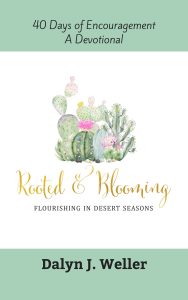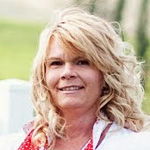by Dalyn J. Weller, @dalynweller
Lately, I’ve been seeing correlations between my Bible study of King Solomon’s life and the writing life. If you aren’t familiar with King Solomon, he was the son of King David, hand-picked by God to usher in Israel’s Golden Age during a time of peace and prosperity. His succession to the throne began with an assignment to build. Solomon was given the blueprints for God’s Temple, a house for His name. (2 Chronicles 2:1)
We too are called to build. God’s house is the body of Christ, His church. How can we as writers build? We edify with words. Words are powerful, and they bear weight. We have a responsibility to build with gold as Solomon did. I mean the gold of well-chosen, beautiful words.
Among many other things, Solomon was a writer. He wrote many Proverbs and otherwise sayings, Song of Solomon, and Ecclesiastes. For the first twenty years, King Solomon was immersed, and happily so, in his creative projects. He built for God, he wrote for God and God’s people. Aren’t you and I the happiest when we are consumed with a worthy endeavor?
The artisans who built the Tabernacle (Exodus 31) were said to be skilled craftsmen, inspired by the Holy Spirit. The words of our Bible, we are told, are inspired. (2 Timothy 3:16) So you see, I believe creativity and craft is an inspired gift. After all, God is also a Writer and Master of all creative work and we are created in His image.
Solomon’s life had purpose and meaning beyond himself and his own interests during those initial years of creativity. He loved God and created a culture of worship in the nation. But somewhere along the twenty-year mark, Solomon slid into moral decline. His many compromises while building his own kingdom destroyed not only his work but the nation’s unity. His gold turned to ashes.
While Solomon was faithful and preoccupied creating for God, he was fulfilled. Sadly, once he moved on to his own projects, he never again experienced that same sense of purpose and enjoyment in his work. He wrote that his life’s pursuits were all “vanity, vanity.” (Ecc. 1) Some Bible translations say he called his work and accomplishments futile. Never again was he able to recapture contentment. He always wanted more but a little more was never enough. Solomon never knew satisfaction in his work after he left God’s ways. We consider contentment great gain, but contentment was something that eluded Solomon in the end.
I learned a few things from Solomon’s sad example. Without God-given purpose and direction, my desire to create and build things with words can become self-serving. When it becomes all about me and my pitiful little kingdom, I will never experience the treasures I could have if I used my pen (or keyboard) to build God’s house and let Him build mine.
1 Corinthians 3:13 is a reminder that what we build will be tested.
“But on the judgment day, fire will reveal what kind of work each builder has done. The fire will show if a person’s work has any value.”
I want peace and fulfillment, and Solomon’s life is a warning to not grasp at a name for myself. I will honor God with humility along the writing journey. I’ll continue to hone my craft, using my gifts to edify and inspire others to the best of my God-given abilities.
What about you? God is a giver. It’s His good pleasure to bless the fruitful work we do in His name. He’s more than able to give us everything. We all want to write well, sell much, and enjoy the community of other writers. There’s nothing wrong with accomplishments. But the real test of success is if we are able to handle a little fame attached to our name.
“But seek first the kingdom of God and his righteousness, and all these things will be added to you.” Matthew 6:33
One of the poems I had my children memorize in our early homeschooling years has always stayed with me, and I’ll leave it with you along with a little reminder to avoid Solomon’s path.
“Aspire, break bounds. Endeavor to be good, and better still, best.”- Robert Browning
“Aspire, break bounds. Endeavor to be good, and better still, best.”
— Robert Browning
Rooted & Blooming, Flourishing In Desert Seasons
 Feeling discouraged? Spiritually dry? We all experience difficulties, but we don’t all flourish in those times. Even if you’re in a desert time, and you feel like a prickly cactus instead of a beautiful bloom, just remember that though a harsh, dry wind may blow into your life once in a while, even a cactus blooms in the desert. Using metaphoric language and plenty of scripture, this book is meant to sustain the weary soul and encourage us to root down in the truths of the Bible and bloom with faith. For those struggling in their faith, or someone just needing a faithful friend to remind them of who they are, Rooted & Blooming was written to lead the way in a courageous daily walk with Jesus. There are forty devotions to be read one per day, or one per week. The chapters include a suggested passage of Scripture to read. Practical and thematic, the devotions are written to remind the reader how to face each day with confidence in the written word of God and what the Bible says to them and about them. Each day is a bit different, with an occasionally suggested prayer, a list of Bible verses to look up, or a thought-provoking quote. Rooted & Blooming, Flourishing In Desert Seasons available in print and e-book at Amazon, Barnes & Noble, and Kobo (audio is in production)
Feeling discouraged? Spiritually dry? We all experience difficulties, but we don’t all flourish in those times. Even if you’re in a desert time, and you feel like a prickly cactus instead of a beautiful bloom, just remember that though a harsh, dry wind may blow into your life once in a while, even a cactus blooms in the desert. Using metaphoric language and plenty of scripture, this book is meant to sustain the weary soul and encourage us to root down in the truths of the Bible and bloom with faith. For those struggling in their faith, or someone just needing a faithful friend to remind them of who they are, Rooted & Blooming was written to lead the way in a courageous daily walk with Jesus. There are forty devotions to be read one per day, or one per week. The chapters include a suggested passage of Scripture to read. Practical and thematic, the devotions are written to remind the reader how to face each day with confidence in the written word of God and what the Bible says to them and about them. Each day is a bit different, with an occasionally suggested prayer, a list of Bible verses to look up, or a thought-provoking quote. Rooted & Blooming, Flourishing In Desert Seasons available in print and e-book at Amazon, Barnes & Noble, and Kobo (audio is in production)
 Dalyn Weller is a small town girl, living with her real-life romantic hero on a horse ranch in Washington State. She writes from the ranch with dogs at her feet, horses hanging their heads over the fences, and dairy goats and sheep munching grass around her chair. Dalyn writes devotional books and Inspirational Romances with a country flavor. Her inspirations come from real-life characters all around her. Life in wine country is full of romance. Visit her all over social media or her website: dalynweller.com and be sure and sign up for her newsletter: Writing From The Ranch
Dalyn Weller is a small town girl, living with her real-life romantic hero on a horse ranch in Washington State. She writes from the ranch with dogs at her feet, horses hanging their heads over the fences, and dairy goats and sheep munching grass around her chair. Dalyn writes devotional books and Inspirational Romances with a country flavor. Her inspirations come from real-life characters all around her. Life in wine country is full of romance. Visit her all over social media or her website: dalynweller.com and be sure and sign up for her newsletter: Writing From The Ranch
